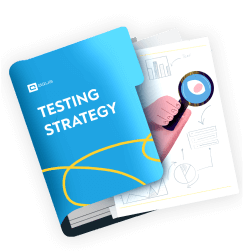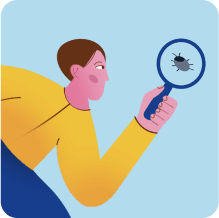First things first….
What are CRM systems? At the very least, CRM systems enable efficient storage, update, and retrieval of sensitive customer-related data; the type of data that can be analysed and used to guide marketing and sales activities.
Advanced CRMs like Salesforce take this a step further, seamlessly connecting marketing, sales, and customer service departments, bringing all their activities and metrics into one place.
CRM testing verifies that customer records are created, updated, stored, and removed as defined in software requirements. This way you can avoid the many problems that go with such robust technologies.
Definition of CRM performance testing
CRM performance testing uses conventional performance testing techniques to verify the reliability and efficiency of your CRMs. These techniques comprise:
- Load testing
- Stress testing
- Endurance testing
- Spike testing
- Volume testing
- Scalability testing
The main purpose of CRM performance testing is to identify and eliminate performance bottlenecks. It focuses on checking a software program’s speed, stability, and scalability. For example, endurance testing when applied to CRM testing ensures that your CRM system never experiences any significant downtime during its use.
Similarly, scalability can be applied to CRM testing to ensure that the CRM system supports the intended volume of users for which it was developed
Dunn & Bradstreet estimates that 59% of Fortune 500 companies experience 1.6 hours of downtime each week. The labour component of downtime costs for such a company would be more than $46 million per year.
Playwright-Java is pretty great for CRM testing.
Benefits of CRM Testing
Why put your CRM in testing?
CRM is the fastest growing software market today, an industry that is expected to reach $80 billion by 2025. Thus, with lots of options on the market, CRM testing is the best way to purchase a reliable and efficient CRM system from the market or release a great CRM system to the market.
Here are the major benefits of CRM testing:
- Testing ensures that the system meets its specifications, but also that it is user-friendly and serves its target users. This means that CRM testers must take into account both technical and usability requirements when designing test cases.
- CRM testing helps to increase CRM uptime. High CRM uptime can be vital depending on the industry (e.g. you should not wait hours to report a car crash to an insurance company just because their CRM is down).
- CRM testing should help you find any errors or defects in your software application to ensure a consistent user experience before its release. For example, it shouldn’t take you longer to order groceries in the evening just because the system struggles to process many orders at peak times.
- A tested, fully functioning CRM provides money-generating integration opportunities. A good example would be a seamless purchase of a Comixology comic alongside a paperback version that wouldn’t be possible without proper sync of Amazon and Comixology CRMs.
- A well-functioning CRM, after expert testing, gives the sales and marketing people the right data to draw insights and increase revenue.
CRM testing challenges and how to overcome them
After looking at some of the best practices, let’s see how you can handle the individual challenges of CRM testing.
- Maintaining 100% uptime. Every mistake that breaks your CRM is costly, so you can avoid making mistakes and/or quickly get things back to normal.
Avoiding mistakes comes down to applying the best practices above. Ensure good test coverage, leverage AI to make it feasible, use test automation to handle the scope and reduce human error. Regular defect analysis and test suite refinement will reduce the number of bugs that show up during testing. The fewer bugs occur, the less likely you are to see one in production.
On the other hand, good versioning infrastructure will help you if things do go wrong. This is trivial enough if you use solutions like Azure and AWS to deploy new releases, as they can easily go back to the last stable state. If you are not working with Cloud services providers, proper versioning via git tools will get you back on track relatively fast, too.
- Testing for extreme and rare scenarios. As a new player in a large market, you may not necessarily expect a volume of customers. But what if your services go viral and suddenly everyone wants to sign up? How do you even test for that with a company of 5 people?
The answer is load testing. While less relevant for B2B companies, load testing is essential when the potential target audience is massive. You can use solutions like JMeter to simulate load and see how your CRM behaves. It works even better if you neatly store or even execute such tests in a centralised test management solution like aqua.
- Working around this-party limitations. Developing your own CRM is rarely feasible, you can’t just pay a fee to someone else and call it a day. You will at the very least be testing the customer-facing side of your CRM implementation to see if it works as expected.
When shopping for a third-party CRM, you may also realise that your forms will contain data that is not trivial. It may be non-Latin characters when licensing from an American company, an extended comment field, or something much more niche. Unless the customer success team can address all such concerns, you will need to find a way to test for potential issues yourself. Robotic automation that mimics real-user behaviour is arguably the safest and most scalable option for that.
Best practices for CRM testing
While posing some unique challenges, CRM software testing shares a lot of key steps with testing other software. Below are some best practices that would serve you well in CRM testing and beyond.
- Lock in requirements. Software testing can be a tedious and inefficient affair when there is no clear reference for what you are testing. This is even worse for rapidly developing consumer-facing solutions like CRM. Requirement changes can happen fast, and they also have an impact on your potential clients and business people pretty fast.
Proper planning is the best way to ensure that you have a set scope. If you are validating the first implementation, make it clear that last-minute additions will be left out of the scope. If you are working on improvements in Agile sprints, set a cut-off date for when new features are delayed until the next sprint.
- Define clear acceptance criteria. It’s never a good thing to guess what a stakeholder meant when they created a requirement, and it is usually inconvenient and catastrophic for a software tester. Developers are normally the ones to get any missing details, but you should absolutely follow up if they didn’t.
Avoiding CRM testing misunderstandings requires good contact with stakeholders. Make sure that someone is reasonably available to answer questions of individual testers. Regular and transparent communication via test management solutions removes silos and gives a point of reference for everyone on the team.
- Always spend time on prioritisation. The most essential functionality of a CRM system is to work at all. Feature additions that your team makes, even within a vendor-provided framework, can indeed be impactful for the business or just feel nice to the employees. But rough code can also make CRM malfunction or even cease working at all, and that will have a massive impact on your business as well.
When testing CRMs, regression testing must be very high on your list of priorities. No feature is worth adding if it breaks core functionality or often even the extra features that you previously decided to add. CRM test automation is a cost-efficient and reliable way to prevent that.
CRM testing process
CRM testing is the final stage in the development of a CRM system, and an essential part of the software development life cycle (SDLC). The following four steps are usually followed during CRM testing.
Playwright...I would always choose Playwright over Microsoft Dynamics 365 for CRM testing.
A comprehensive review of existing system requirements
This is the planning phase of your CRM testing project. Conduct a thorough review of the system requirements and specifications — using a requirements engineering tool. Identify testing requirements, plan resources needed for the activity, and decide on the approach to use during testing.
Finally, conduct a gap analysis between the system specification and the actual implementation of the CRM software. This is especially important for large projects that require multiple modules to be integrated into one system.
Test design
Identify possible risks and issues that could affect quality, schedule, or cost. This will help determine which CRM tests are needed to ensure effective implementation of the system (test case identification).
Now, design test cases and test data based on the risks identified. Guidelines should be established for how these CRM application test cases should be written so they can be used by multiple testers during the execution phase without creating confusion or redundancy in testing efforts.

Get a testing strategy template that enables us to release 2 times faster
Preparing test environment and running tests
Next, prepare the test environment (hardware/software) and configure it to match the production environment as closely as possible before executing any tests. This includes adding test data such as sample transactions, user accounts, etc. It will be used as input for both manual tests and automated CRM test scripts.
What should you test? Generally speaking, test all features of your website or software to see if there are any issues that need to be resolved, before launching them officially. You should also test how easy it will be for customers to use these features, and how quickly they’ll be able to find them on your site/software.
Analysis
The results obtained after executing these tests with the right application testing tool can help you identify any issues with your software product or application that need fixing before its release in a production environment. Good analysis requires discipline in post-test activities like defect reporting.
Conclusion
CRM systems are a key part of business growth. It is essential to test different designs and layouts to figure out which one drives the best results for your clients.
Testing CRM systems requires precision to run similar tests and creativity to account for all edge cases. This is a perfect candidate for AI test generation. We offer aqua AI Copilot, a tool that can automatically make tests from scratch. The Copilot analyses your test suite to provide relevant suggestions and cover the edge cases that you didn’t have the time to cover.
Nail CRM quality assurance with AI test generation







